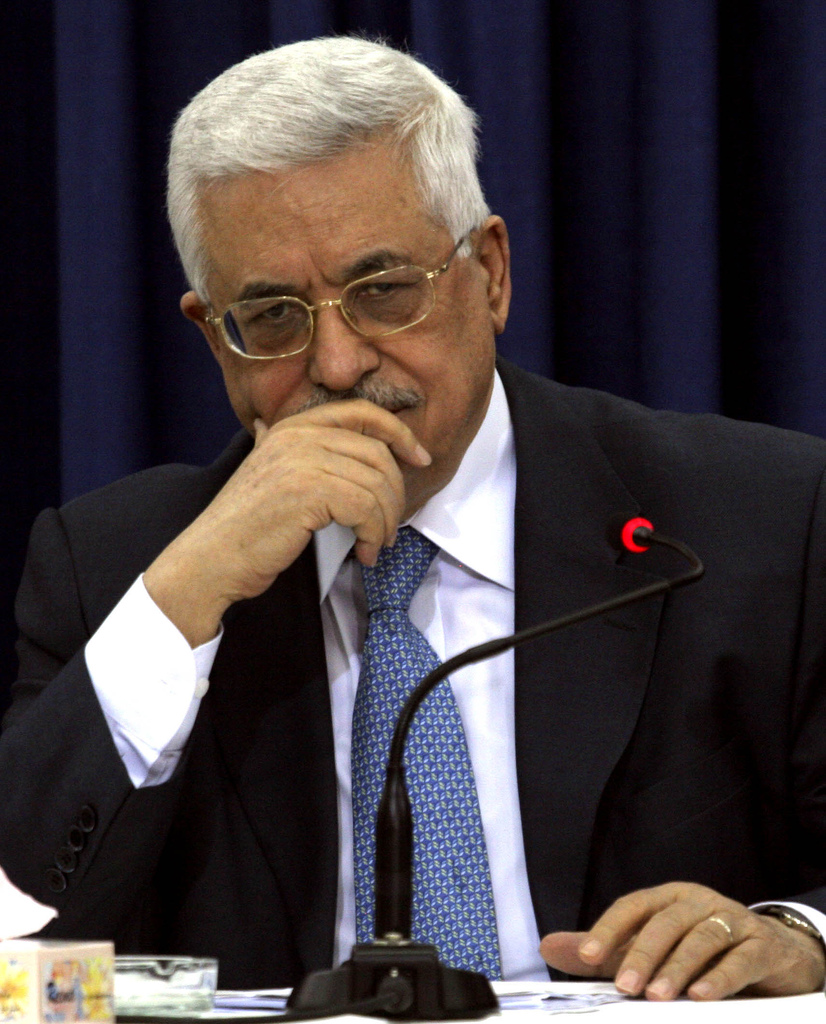On Friday, September 23rd, 2011, upon commencement of the annual session of the United Nations General Assembly, Palestinian Authority (PA) President Mahmoud Abbas presented a historic statehood recognition request before the Security Council. This comes after half a century of conflict, which was supposed to end with the signing of the Oslo Accords in 1993 and the establishment of a Palestinian state within five-years. However, the so-called peace process has disintegrated over the last 15 years amid the expansion of settlements, the construction of the so-called separation-barrier, and with the election of Hamas in Gaza. The statehood bid is a momentous event representing a turning point in the Arab-Israeli conflict and, if successful, will result in repercussions that far exceed the boundaries of the two peoples. Divergent viewpoints have emerged as a result of the bid, with the largest rift opening between the United States (U.S.) and the Arab world. The U.S., a long-time supporter of Israel and proponent of the peace process, appears to Arab governments to be employing a double standard by opposing the statehood bid while claiming to support democratic aspirations elsewhere in the region. The question confronting interested parties and the question which this article seeks to explain is: how does one make sense of this new political order that is taking shape around arguably the largest development in the Mid-East peace process for over two decades?
A bid for statehood via the Security Council, the only body at the U.N. that can grant full membership, must pass by a two-thirds majority with no vetoes from the permanent-5 (P5) countries (see chart 1.1). As it is almost certain that the United States, a P5 member, will veto this request, Abbas is expected to put a similar vote before the General Assembly, which only requires assent from 2/3 of participating states. While the latter vote would not be able to grant formal statehood, this would award Palestine observer-state status, akin to the Vatican, essentially acknowledging that Palestine is a sovereign nation, but without the rights associated with being a full member-state of the United Nations. This would allow the PA to pursue sanctions and legal actions against Israel in established international law tribunals, such as the International Criminal Court (ICC).

The Palestinian bid for statehood will have marked regional and international consequences as well. U.S. Secretary of State, Hilary Clinton, has made it clear in no uncertain terms that a Palestinian request would result in an inevitable U.S. veto against what policy makers perceive as an attack on the peace process in general. President Obama has articulated that, by utilizing the U.S. veto, he is attempting to avoid a heavy-handed, top-down decision on the statehood issue such as a Security Council mandate. Instead, Obama believes that true and lasting peace must come from resolution between the affected parties. “I am convinced that there is no shortcut to the end of a conflict that has endured for decades. Peace will not come through statements and resolutions at the U.N. — if it were that easy, it would have been accomplished by now,”[i] the president said in a statement at the U.N. on September 21.
The Obama administration’s displeasure at the Palestinian bid comes almost a year to the day after the President last addressed the General Assembly, stating that, “When we come back here next year, we can have an agreement that will lead to a new member of the United Nations – an independent, sovereign state of Palestine, living in peace with Israel.”[ii] Former President Bill Clinton, speaking on “Meet the Press;” said that U.S. opposition to the bid is based on its procedural status, not opposition to Palestine as a state. According to Clinton, the main priority for the United States in the event of the Palestinian push for statehood is to ensure that such a ‘backdoor’ method will not jeopardize the broader peace process. “When this is over, the underlying reality won’t change, and we still believe there should be a Palestinian state, and we still believe there should be cooperation between Israel and our Arab neighbors,”[iii] he said.
The United States has both legal and philosophical reasons for advocating against the unilateral Palestinian bid. First, the U.S. argues that the bid directly violates the 1993 Oslo Accords which stipulated that the resolution to the Israeli-Palestinian conflict be carried out in direct face-to-face negotiations between the two parties. However, some in the Palestinian community believe that the accords are invalid as the original agreement stipulated that a Palestinian state would be created in five-years. Second, Israel and the U.S. allege that the bid makes resolution of the conflict even more difficult to resolve in bilateral negotiations due to the institutional and symbolic leverage that the Palestinians would gain from its success. Israel, meanwhile, has threatened much more meaningful and direct methods to discourage the charge for statehood. Israeli Prime Minister Benjamin Netanyahu has threatened to shut off the funneling of taxed income, nearly $1.2 billion dollars per year,[iv] to the PA, as well as an end to security cooperation with Abbas’ government. Likewise, the United States has threatened to cut off its own foreign aid program, which could cost the government an additional $500 million per year.[v] The United States and its allies are actively working to delay or prevent the request from coming to a vote. The day Abbas submitted the bid, the Quartet– the U.S., U.N., E.U., and Russia – proposed the resumption of talks within a month and a one-year deadline for the establishment of a Palestinian state[vi], though it remains to be seen whether the two parties will accept this proposal.
Venturing outside the Security Council, the picture gets even more complicated. Arab states have been outspokenly critical of the U.S. decision to veto the Palestinian bid after months of U.S. support for democratic movements elsewhere in the Middle East. Carne Ross, a former British diplomat at the U.N., has stated that a U.S. veto “will reconfirm, for many people, that at the end of the day, the U.S. is not prepared to push Israel to an equitable solution in this dispute. So undoubtedly, I think the U.S. standing in the Arab world will be lowered by this [veto][vii].” Experts highlight the loss of U.S. credibility, soft power, and ability to build alliances in the Middle East as consequences of a U.S. veto. Fawaz Gerges, a leading expert in Middle Eastern politics and professor of international relations of the London School of Economics, fears that a veto will fuel anti-American sentiments, will mobilize segments of Arab and Muslim public opinion against the United States, [and] will complicate President Obama’s outreach efforts to Arab and Muslim public opinion and also his embrace of the Arab revolutions.”6
Saudi Arabia, a long-standing supporter and ally of the Palestinians, has announced its deep disappointment with the American position. Prince Turki al-Faisal, former Saudi ambassador to the U.S. and former Director of Al Mukhabarat Al A’amah, Saudi Arabia’s intelligence agency, has been outspokenly critical of the U.S. move. Al-Faisal has made statements which threatened future opposition to the government of Prime Minister Nouri al-Maliki in Iraq, as well as refused to open an embassy in Baghdad in response to a U.S. veto. This is worth noting because a lack of Saudi support there puts Obama’s plans for an accelerated troop withdrawal in jeopardy, as the lack of a strong central government could reignite deep divisions between Sunni and Shi’a Muslims in the country. Al-Faisal has also warned of a break from the U.S. in the two countries collaboration on Afghanistan and Yemen. Now that the regional al-Qaeda base has moved to Yemen, the U.S. has a vested interest in preserving its counter-terrorism alliance with faltering President Ali Abdullah Saleh. Finally, Saudi Arabia is Pakistan’s closest ally in the Middle East. This means that the monarchy’s support for the U.S. in Islamabad is crucial in reaching a feasible solution to the conflict in Afghanistan. This is especially true in the face of increasing tensions between Pakistan and the U.S. after the assassination of Osama bin Laden on Pakistani soil. For the U.S., Pakistan’s extremely porous northern border with Afghanistan has meant that their proximity to the latter necessitates cooperation in exchange for the ability to combat terrorism using this tenuous relationship. As such, a loss of Saudi support could jeopardize the eventual U.S. withdrawal from Afghanistan and leave the United States stranded without a strong-ally in the Arab world
Further complicating matters are the divergent opinions of the Palestinian people. Many are opposed to what they see as a crisis of accountability in the leadership presenting the bid to the UN. Neither PA President, Mahmoud Abbas, nor chief negotiator, Saeb Erekat, have perfect records in the eyes of their constituents. In February of 2011 Erekat resigned from his government post due to leaked documents, the so-called ‘Palestine Papers’, which contained information about numerous concessions the PA was willing to give to Israel in an attempt to reach a final peace agreement.[viii] These included giving up the universally recognized right of return, affirmed in UN Resolution 242, and something that most Palestinians see as an integral part of any final resolution. In fact, many in the diaspora hope for a ‘no’ vote in the Security Council considering the lack of assurances that the right of return will be protected.7 Abbas himself is haunted by a lack of validity and credibility in the eyes of Palestinians, as the current PA mandate expired three years ago and does not extend to those living in Gaza or refugees in neighboring Arab states.7 Furthermore, Abbas was not confirmed by the Palestine Liberation Organization’s legislature, the Palestinian National Council, which has not met in two years. Many Palestinians harbor a fear of misrepresentation by the PA, as a result of the ‘Palestine Papers’ and the; “lack of information regarding the details of the [statehood] bid” and the fact that the PA has “yet to disclose any of the details regarding what a ‘Palestinian state’ actually means, especially in terms of representation,” according to Nour Samaha, a reporter for the Doha based al-Jazeera.
Opponents of the statehood bid resoundingly take fault with the procedural methods through which the push for Palestinian statehood arrived on the United Nations’ agenda. Individual personalities play a key role, notably that of Mahmoud Abbas who many say is attempting to reassert his own personal relevance on the world stage, and Barack Obama as his decisions are inevitably influenced by next-year’s re-election bid. Ultimately, the ostentatious rhetoric and power politics displayed in response to the move by Abbas may far surpass what slim results the bid achieves. To attain the two-state solution sought by all will require real work that goes far beyond the superficial assignment of status by the world’s powers.
[i] Malone, Noreen. “Obama Says Palestine Statehood Can’t Come From a U.N. Vote.” New York Magazine. 21 Sept. 2011. Web. 21 Sept. 2011. <http://nymag.com/daily/intel/2011/09/obama_4.html>.
[ii] “Text of President Barack Obama’s Address to the UNGA.” Voice of America News. 23 Sept. 2010. Web. 29 Sept. 2011. <http://www.voanews.com/english/news/usa/President-Barack-Obamas-Address-to-the-UNGA-103623234.html>.
[iii] The Associated Press. “Officials Race To Avert Palestinian Statehood Vote Amid Warnings Of Renewed Violence.” Fox News. 18 Sept. 2011. Web. 21 Sept. 2011. <http://www.foxnews.com/politics/2011/09/18/officials-race-to-avert-palestinian-statehood-vote-amid-warnings-renewed/>.
[iv] Krause-Jackson, Flavia, and Tal Barak Harif. “Israel May Hold Palestinian Taxes on UN Vote.” Businessweek. 21 Sept. 2011. Web. 27 Sept. 2011. <http://www.businessweek.com/news/2011-09-21/israel-may-hold-palestinian-taxes-on-un-vote-steinitz-says.html>.
[v] Heilman, Uriel. “A Primer on Palestinian Statehood.” JTA – Jewish & Israel News. 15 Aug. 2011. Web. 21 Sept. 2011. <http://www.jta.org/news/article/2011/08/15/3088993/a-primer-on-palestinian-statehood?gclid=CLvstYSqr6sCFc_AKgodvnp8NA>.
[vi] MercoPress. “Israel and Palestinians Told to Resume Peace Talks within One Month.”MercoPress. 24 Sept. 2011. Web. 29 Sept. 2011. <http://en.mercopress.com/2011/09/24/israel-and-palestinians-told-to-resume-peace-talks-within-one-month>.
[vii] Nesnera, André De. “Possible US Veto Against Palestinian Statehood Bid at UN Debated.”Voice of America News. 21 Sept. 2011. Web. 21 Sept. 2011. <http://www.voanews.com/english/news/Analysts-Debate-Possible-US-Veto-at-UN-130293078.html>.
[viii] Samaha, Nour. “Palestine Statehood Team a ’cause of Concern'” Al Jazeera. 22 Sept. 2011. Web. 22 Sept. 2011. <http://english.aljazeera.net/indepth/features/2011/09/201192212910587149.html>.


